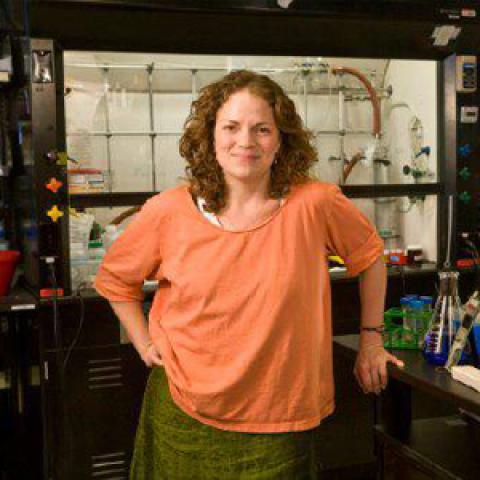Interdisciplinary Initiatives Program Round 4 – 2008
Annelise Barron, Bioengineering
Theodore Jardetzky, Structural Biology
Human respiratory syncytial virus (hRSV) typically affects newborns and young children, causing more than 120,000 pediatric hospitalizations in the United States alone with costs of $356-585 million annually. Even though it causes severe, and, in some cases, lifelong respiratory infections, there are no safe, specific therapeutics that control this virus. hRSV F protein facilitates viral fusion, an early and critical extracellular event that is appealing for therapeutic targeting by preventing the assembly of the 6-Helix bundle (6HB) of hRSV F protein. Our research has successfully developed an in vitro screening system for antivirals against hRSV infection. Our accomplishments we made so far and concluding current efforts are briefly described below.
As encouraged by Bio-X Interdisciplinary Initiative Program, the collaboration between the Barron and Jardetzky labs has played a crucial role in cultivating the proposed studies and generating fruitful results. Based on this well-established collaboration, this project has combined the Jardetzky lab's expertise in structural biology including biophysical characterization of proteins of interest with the Barron lab's vast knowledge on the synthesis, purification and characterization of peptides and peptoids.
We anticipate that this project has provide the very unique way to a variety of biomedical and biomaterial applications not accessible to peptides, by developing peptidomimetic antiviral agents as a new class of biostable peptide pharmaceuticals. In addition, we believe this work will advance peptoid design and particularly their potential for therapeutics development while generating a commonly applicable strategy for designing biomimetic antiviral agents, which can target other viruses of the paramyxoviruses family such as mumps and measles.



